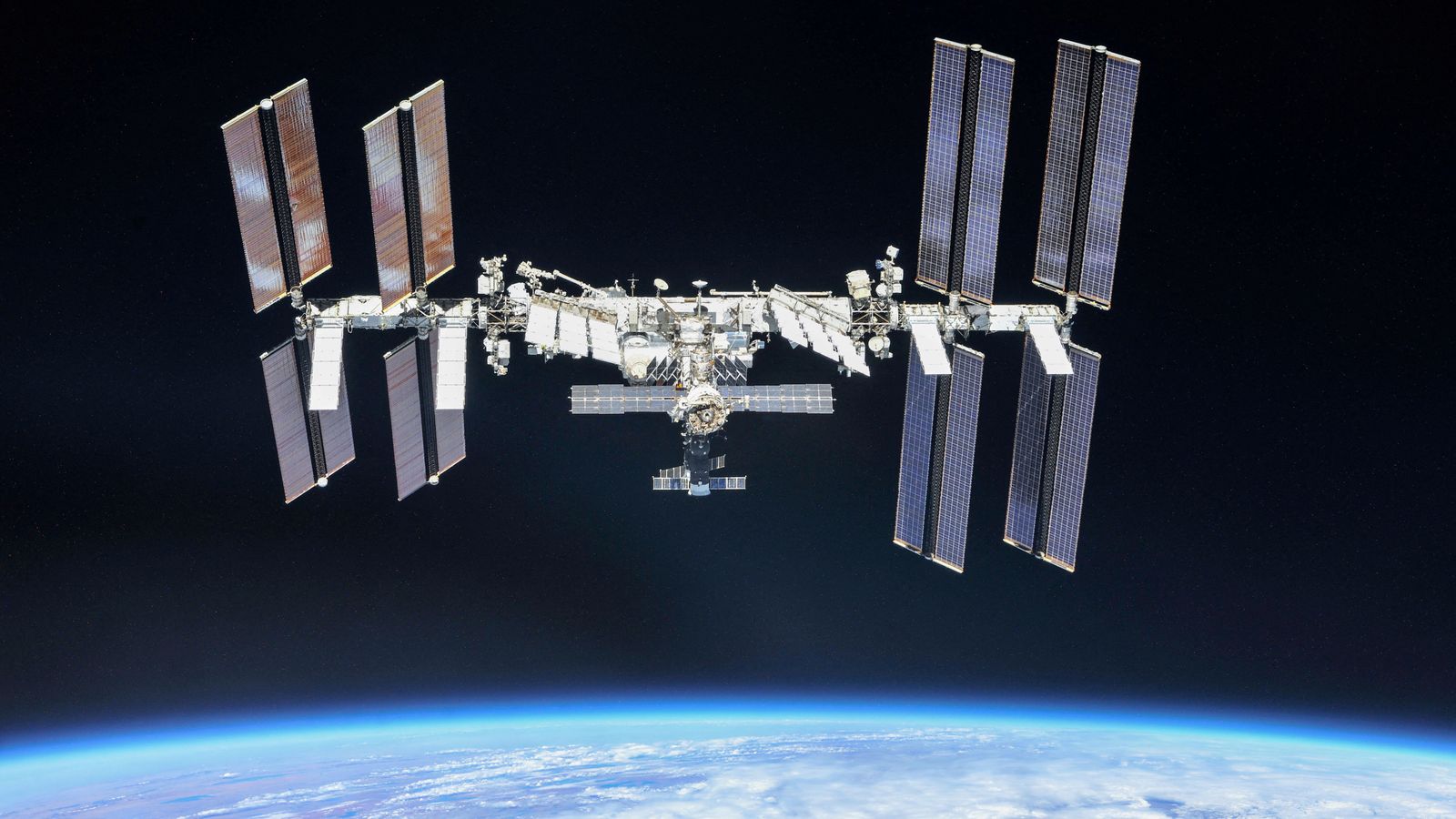Russia has said it will withdraw from the International Space Station (ISS) after 2024 to focus on building its own orbital outpost.
Yuri Borisov, who was appointed to lead the state-controlled space corporation Roscosmos earlier this month, said during a meeting with President Vladimir Putin that Russia would fulfil its obligations to other partners before it leaves the project.
Mr Borisov said, “the decision to leave the station after 2024 has been made”.
The US, however, says no such move has been communicated to NASA – amid continued tensions between Moscow and the West over the war in Ukraine.
White House spokesperson Karine Jean-Pierre told reporters during a briefing on Tuesday: “The government has not formally notified the United States of their intentions to withdraw from the ISS.
“We’re exploring options to mitigate the potential impacts on the ISS beyond 2024 if Russia does withdraw.”
In April, Mr Borisov’s predecessor, Dmitry Rogozin, said Russia would halt co-operation on the ISS in response to the sanctions imposed on Russia over the invasion of Ukraine.
NASA criticises Russia for using space station to stage propaganda photographs
Astronauts suffer ‘significant’ bone loss during space missions – raising concerns for future trips to Mars
SpaceX brings four astronauts home from International Space Station amid Russian non-cooperation threats
He argued the sanctions were designed “to kill the Russian economy, plunge our people into despair and hunger, and bring our country to its knees” and said normal relations could only be restored with the unconditional lifting of the “illegal” measures.
Russia has signalled for a while that it wants out of the International Space Station after 2024 but Russia’s new geopolitical isolation has clearly crystallised its intention to cut loose.
Russia was never as engaged with the ISS from a scientific point of view as Europe or the US were. For starters, the US had substantially more scientific equipment on board than the Russians ever did. Being a part of the ISS for Russia was primarily a matter of prestige, not science.
Russian aerospace company RSC Energia is already making bullish statements that the new Russian orbital station will launch as soon as 2028. Sanctions will complicate but not imperil the project; the Russians will find workarounds.
As for Vladimir Putin, space is just one more dimension to the great power status he craves. He is more interested in building rockets and securing independent access to space to position his military satellites than he is in the research dimensions the ISS was built to facilitate.
Still, NASA says Roscosmos remains a good partner. Between now and 2024 there will be a significant transfer of expertise required – that cooperation will need to stay strong.
Despite heightened tensions, NASA and Roscosmos agreed earlier this month for astronauts to continue riding Russian rockets and for cosmonauts to catch lifts to the ISS with SpaceX beginning in autumn.
The agreement will ensure the space station will always have at least one American and one Russian on board to keep both sides of the orbiting outpost running smoothly, NASA and Russian officials said.
Natan Eismont, head scientist at the Space Research Institute of the Russian Academy of Sciences, has spoken of his regret that his country is opting out of the ISS after 2024 and creating a new space complex.
He told Sky News: “The ISS was the most powerful instrument for international cooperation… to say goodbye to this unprecedented instrument, I think it’s a pity.”
However, he added: “I don’t think it’s the end of cooperation.”
Earlier this year, NASA published plans for the ISS which could see the 444,615kg structure taken out of orbit in January 2031 and crashed into a “spacecraft cemetery”.
It said the laboratory would continue operating until 2030, but its long-term future is unsustainable.






